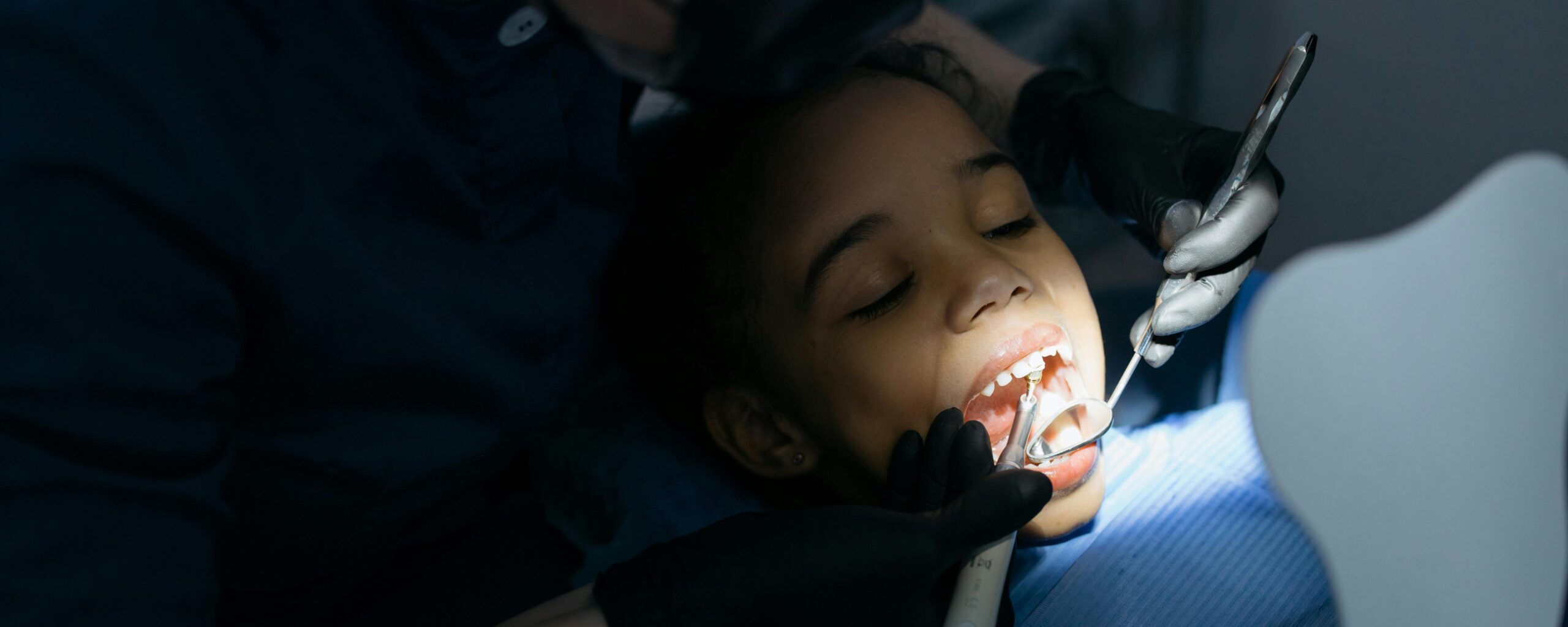
04 Dec What Happens if Children Won’t Brush Their Teeth?
Ensuring children develop good oral hygiene habits, such as brushing their teeth regularly, is critical for their overall health. Brushing isn’t just about having a bright smile; it’s a practice that protects teeth, gums, and overall well-being. What happens when children don’t brush their teeth? The consequences can be severe, impacting not just their oral health but other aspects of their lives too. Let’s dive into five significant consequences.
Development of Cavities and Tooth Decay
When children skip brushing their teeth, they allow food particles and plaque to accumulate in their mouths. Plaque is a sticky film of bacteria that constantly forms on teeth. These bacteria produce acids that attack the tooth enamel. Over time, these acids erode the protective layer of the teeth, leading to cavities.
Cavities, also known as dental caries, are one of the most common chronic diseases among children. If left untreated, cavities can worsen into severe tooth decay, causing pain, infections, and even tooth loss. Dental decay can impact a child’s ability to eat, sleep, and focus in school. It may also lead to expensive dental procedures, such as fillings, crowns, or extractions. Encouraging your child to brush twice daily with fluoride toothpaste is the best way to prevent these problems.
Increased Risk of Gum Disease
Another major consequence of poor oral hygiene in children is gum disease, starting with a condition known as gingivitis. Without proper brushing, plaque builds up along the gumline. Over time, this buildup irritates the gums, causing redness, swelling, and even bleeding during brushing.
If gingivitis is not addressed early, it can escalate to periodontitis, a more serious form of gum disease. Periodontitis can damage the gums and the structures that support the teeth, leading to loose teeth and eventual tooth loss. While gum disease is more common in adults, children who neglect their oral hygiene can also develop it. Gum disease is preventable, but it requires consistent brushing and flossing, as well as regular dental check-ups. Teaching your child these habits early can save them from unnecessary pain and complications later in life.
Bad Breath (Halitosis)
Bad breath, also called halitosis, is another unpleasant result of skipping regular brushing. When food debris remains in the mouth, it becomes a feeding ground for bacteria. These bacteria produce sulfur compounds, which result in a foul smell. Children with persistent bad breath might feel embarrassed or hesitant to engage with others. This can affect their social interactions and confidence, especially in school settings. Additionally, bad breath is often a warning sign of other oral health problems, like cavities or gum disease.
To keep bad breath at bay, teach children to brush their teeth, clean their tongues, and drink plenty of water. Regular brushing also ensures that bacteria and food particles don’t linger in the mouth to cause odors.
Impact on Overall Health
Oral health and overall health are closely linked. When children don’t brush their teeth, harmful bacteria in the mouth can enter the bloodstream. Once in the bloodstream, these bacteria can travel to other parts of the body and potentially cause infections or worsen existing conditions.
Research suggests that poor oral hygiene may increase the risk of heart disease, diabetes, and respiratory infections. While these conditions are more common in adults, the foundation for good health starts early. Teaching children proper brushing habits not only protects their oral health but may also contribute to better long-term overall health. Parents can emphasize the importance of a healthy mouth as part of maintaining a healthy body. This holistic view helps children understand why brushing is non-negotiable.
Lower Self-Esteem and Quality of Life
Oral health issues don’t just affect a child’s physical health; they can also harm their mental and emotional well-being. Children with visible tooth decay or noticeable bad breath may feel self-conscious. They might avoid smiling, talking, or interacting with others, which can lower their self-esteem.
Poor oral health can also affect academic performance. For example, dental pain or discomfort may distract a child from focusing in class. In severe cases, a child might miss school days due to dental problems or necessary treatments.
By encouraging good oral hygiene practices, parents can help their children feel confident and comfortable in social and academic environments. A healthy smile contributes to a positive self-image, which is especially important during formative years.
How to Prevent These Issues
Preventing the consequences of poor oral hygiene is easier than addressing the problems after they arise. Here are some practical tips to ensure children maintain good oral health.
- Set a Routine: Make brushing twice a day a non-negotiable part of their daily routine.
- Use the Right Tools: Choose a child-friendly toothbrush with soft bristles and fluoride toothpaste.
- Make It Fun: Turn brushing into a game with timers, songs, or rewards for consistent brushing.
- Lead by Example: Let your child see you brushing and flossing regularly to reinforce the habit.
- Schedule Regular Dental Visits: Regular check-ups can catch and address problems early.
Conclusion
The importance of brushing teeth goes far beyond avoiding cavities. Neglecting this simple habit can lead to serious consequences, including cavities, gum disease, bad breath, systemic health problems, and diminished self-esteem. Each of these outcomes can significantly impact a child’s overall quality of life. Parents play a vital role in instilling good oral hygiene habits early. By teaching children the value of brushing their teeth and making it a fun and engaging activity, parents can help them build a strong foundation for lifelong oral and overall health. A healthy smile is not just a cosmetic asset; it’s a key component of well-being and confidence.
Washington Family Dental has the same priority as you: making sure your child has the dental care they need. Schedule an appointment with us today!

About Our Team
Our team at Washington Family Dental has over 30 years of experience in the field of dentistry and a reputation for excellent patient care.
Read more about our team here. Ready to book your appointment? Contact us here.
